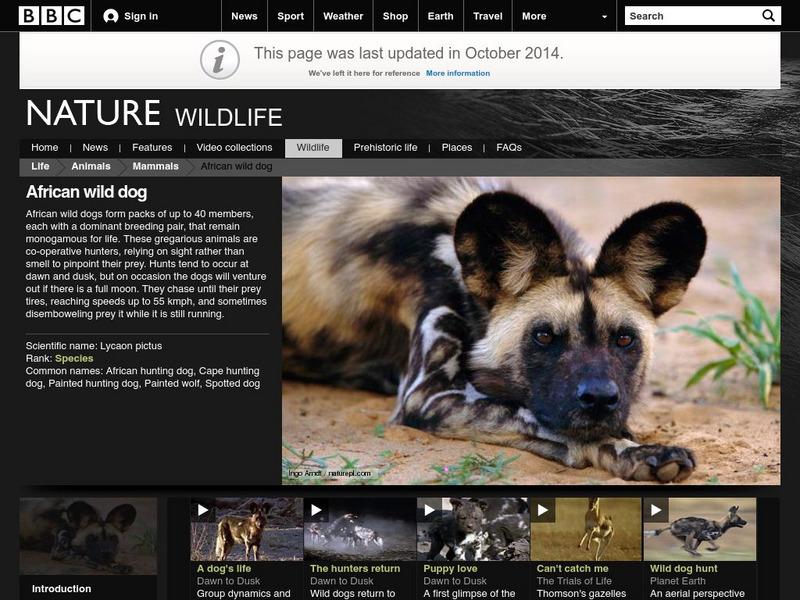Hi, what do you want to do?
Royal Canadian Geographical Society
Canadian Geographic: Animal Facts: Bison (Buffalo)
Learn fast facts, the physiology, habitats, behaviors and range of the bison.
Royal Canadian Geographical Society
Canadian Geographic: Animal Facts: Common Garter Snake
Learn fast facts, the physiology, habitats, behaviors and range of the common garter snake.
Royal Canadian Geographical Society
Canadian Geographic: Animal Facts: Pronghorn
Learn fast facts, the physiology, habitats, behaviors and range of the pronghorn.
Royal Canadian Geographical Society
Canadian Geographic: Animal Facts: Canada Lynx
Learn fast facts, the physiology, habitats, behaviors and range of the Canada lynx.
Royal Canadian Geographical Society
Canadian Geographic: Animal Facts: Wild Horse
Learn fast facts, the physiology, habitats, behaviors and range of the horse.
Royal Canadian Geographical Society
Canadian Geographic: Animal Facts: Atlantic Puffin
Learn fast facts, the physiology, habitats, behaviors and range of the Atlantic puffin.
Royal Canadian Geographical Society
Canadian Geographic: Animal Facts: Bald Eagle
Learn fast facts, the physiology, habitats, behaviors and range of the bald eagle.
Royal Canadian Geographical Society
Canadian Geographic: Animal Facts: Bighorn Sheep
Learn fast facts, the physiology, habitats, behaviors and range of the bighorn sheep.
Royal Canadian Geographical Society
Canadian Geographic: Animal Facts: Fisher
Learn fast facts, the physiology, habitats, behaviors and range of the fisher.
Royal Canadian Geographical Society
Canadian Geographic: Animal Facts: Two Striped Grasshopper
Learn fast facts, the physiology, habitats, behaviors and range of the two-striped grasshopper.
Royal Canadian Geographical Society
Canadian Geographic: Animal Facts: Great Blue Heron
Learn fast facts, the physiology, habitats, behaviors and range of the great blue heron.
Royal Canadian Geographical Society
Canadian Geographic: Animal Facts: Monarch Butterfly
Learn fast facts, the physiology, habitats, behaviors and range of the monarch butterfly.
Royal Canadian Geographical Society
Canadian Geographic: Animal Facts: Pacific Loon
Learn fast facts, the physiology, habitats, behaviors and range of the Pacific loon.
Royal Canadian Geographical Society
Canadian Geographic: Animal Facts: Redheaded Woodpecker
Learn fast facts, the physiology, habitats, behaviors and range of the redheaded woodpecker.
Royal Canadian Geographical Society
Canadian Geographic: Animal Facts: Ruffed Grouse
Learn fast facts, the physiology, habitats, behaviors and range of the ruffed grouse.
Royal Canadian Geographical Society
Canadian Geographic: Animal Facts: Atlantic or Pacific Salmon
Learn fast facts, the physiology, habitats, behaviors and range of the Atlantic or Pacific salmon.
Royal Canadian Geographical Society
Canadian Geographic: Animal Facts: Tundra Swan
Learn fast facts, the physiology, habitats, behaviors and range of the tundra swan.
Royal Canadian Geographical Society
Canadian Geographic: Animal Facts: Walrus
Learn fast facts, the physiology, habitats, behaviors and range of the walrus.
BBC
Bbc Nature Wildfacts: African Wild Dog
These wild pack animals use unique individual markings to recognize each other. Read this outline of facts and look at some images to learn more.
Royal Canadian Geographical Society
Canadian Geographic: Animal Facts: Beluga Whale
Learn facts, physiology, habitat, behaviors and range of the beluga whale. A fact sheet is also available for download.
Royal Canadian Geographical Society
Canadian Geographic: Animal Facts: Blue Jay
Learn fast facts, the physiology, habitats, behaviors and range of the blue jay.
Royal Canadian Geographical Society
Canadian Geographic: Animal Facts: Cougar
Learn fast facts, the physiology, habitats, behaviors and range of the cougar.
Royal Canadian Geographical Society
Canadian Geographic: Animal Facts: Eastern Chipmunk
Learn fast facts, the physiology, habitats, behaviors and range of the Eastern chipmunk.
Royal Canadian Geographical Society
Canadian Geographic: Animal Facts: Flying Squirrel
Learn fast facts, the physiology, habitats, behaviors and range of the Northern and Southern Flying Squirrel.






